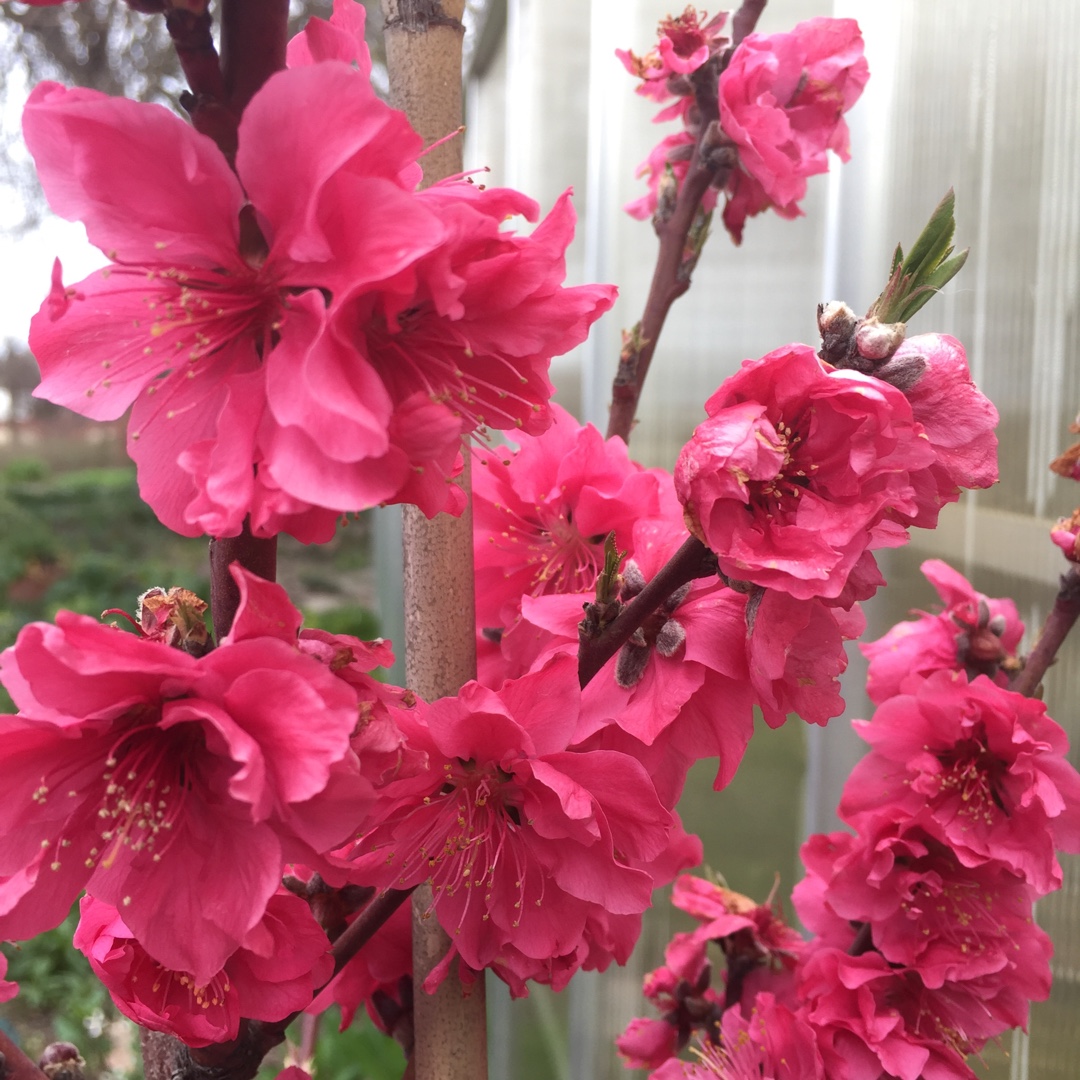
Prunus persica var. nectarina 'Atomic Red'
Nectarine 'Atomic Red'
Nectarine trees bear fragrant flowers before the leaves emerge, and, once pollinated, develop small furry green fruit that gradually ripen through the Summer.Thin these fruits to to one or two per shoot, to encourage good fruit, and pick as soon as ripe before birds etc. get to them! Nectarine trees are usually grown as a tree, fan or espalier. They flower early in the season, and in cool climates may need pollination by hand, using a soft brush. 'Atomic Red' has deep red double flowers, and produces white fleshed nectarines with red skins.
Contributed by @weeden
-
Full sun to partial shade
-
Occasional watering
-
Full Frost Hardy: 5F (-15°C)
-
Free draining and fertile
Common name
Nectarine 'Atomic Red'
Latin name
Prunus persica var. nectarina 'Atomic Red'
type
Fruiting tree
family
Rosaceae
ph
6.0 - 7.0 Acid - Neutral
Plant & bloom calendar
-
Best time to plant
-
When to harvest
full grown dimensions
 5.00 M
6.00 M
5.00 M
6.00 M
Prunus persica var. nectarina 'Atomic Red'
Nectarine trees bear fragrant flowers before the leaves emerge, and, once pollinated, develop small furry green fruit that gradually ripen through the Summer.Thin these fruits to to one or two per shoot, to encourage good fruit, and pick as soon as ripe before birds etc. get to them! Nectarine trees are usually grown as a tree, fan or espalier. They flower early in the season, and in cool climates may need pollination by hand, using a soft brush. 'Atomic Red' has deep red double flowers, and produces white fleshed nectarines with red skins.
Planting
From Early Autumn TO Mid Autumn
Plant out new or container grown trees in Autumn, when the soil is warm which will encourage better root development
Propagation by Cuttings
From Late Spring TO Early Summer
Take soft wood cuttings in spring to early summer. Cleanly cut up to a 10cm long stems, remove lower leaves and pinch the tip out, dip the stem into rooting hormone, fill a container/pot with suitable compost, make holes around the edge of it and plant the cuttings, water in well, cover with a polythene bag and place somewhere warm, lake the bag off twice a week to air the cuttings. Keep the cuttings moist until well rooted.Harden off when well rooted and pot on into individual pots increasing the airing to let the leaves to develop. Remove rotten, dying or dead cuttings regularly.








